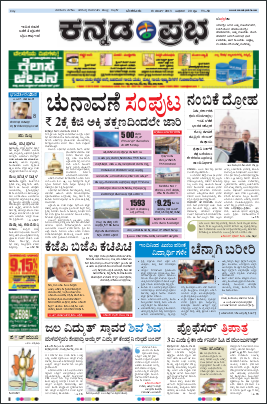
The creation of categories like classical language and scheduled language has created powerful hierarchies, while excluding other languages.

Most of us are now familiar with the acrimonious debates on national and state language. The institutions of modernity such as the nation, state, linguistic state, bureaucracy, the legal system have all negatively impacted linguistic diversity. However, rigid caste and social stratification has kept many tribal languages and mother tongues out of this rich and colourful exchange. The impact of languages coexisting is also seen in the names of objects of everyday culture. Syntactic variations in Havyaka Kannada, Kundapura Kannada, Malnad Kannada are a linguistic delight, not to mention accents and phonological features. The numeral words in Kalyana Karnataka are of Marathi and Dakhani origin and North Karnataka dialect also uses them. People borrow and steal from many languages, even when pundits and grammarians impose esoteric rules of linguistic purity. The historical co-existence of many languages in Karnataka have greatly contributed to Kannada’s highly variegated vocabulary, though most of it exists only in speech. The paradox is that while there are technologies that can document, preserve and disseminate all spoken languages, socio-economic factors are drastically reducing the actual number of language speakers. Languages with a long written and literary tradition are more likely to survive the juggernaut of modernity and globalisation. In fact, the PSIL lists the Irula and Hakkipikki languages as seriously endangered. The People’s Linguistic Survey of Indian Languages (PLSI) in 2010, led by Ganesh Devy, lists 50 spoken languages which can be mapped on a scale with several lakh speakers to less than a thousand.Īs Ganesh Devy, K V Narayana and other linguists argue, several tribal languages have been disappearing and with them, the unique worldview they embody. But this apparent linguistic diversity pales in comparison to the number of ‘spoken’ languages sometimes known as mother tongues. Urdu, Tamil and Telugu are also spoken by a sizeable number of people.

This diversity also includes dialects of Kannada from North Karnataka, Dakshina Kannada and Kalyana Karnataka, which can sometimes be unintelligible to other people from other parts of the state. Bengaluru, which has speakers of 107 languages, is the most diverse. This historical legacy continues into the present, with surveys declaring Karnataka as one of the states with high linguistic diversity. With several trade routes criss-crossing the region, most individuals were polyglot or at least bilingual. Before it was reorganised along linguistic lines in 1956, the state was an extraordinary geopolitical space, occupied or ruled by several dynasties which spoke languages other than Kannada. Karnataka’s linguistic diversity has always been mindboggling.


 0 kommentar(er)
0 kommentar(er)
